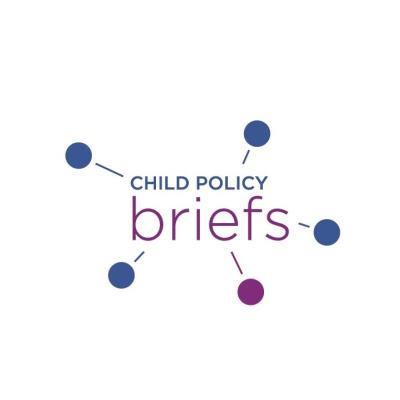Child Abuse, Neglect, and Maltreatment
A summary of the scientific literature on child welfare.


How This Impacts Children's Development
An overabundance of parental monitoring and control can lead to other needs of the child not being met, while too little monitoring and control can endanger children's safety. Abuse, neglect, and bullying are “toxic stressors” and have detrimental effects on the child’s development. Children impacted by different types of maltreatment have low levels of trust in others and are more likely to develop aggressive and violent behaviors, and negative mental health outcomes, among others.
READ THE BRIEF: creating universal tiered systems to prevent child maltreatment, 2019
READ THE BRIEF: how abuse and neglect affect children's minds and bodies, 2014
Talking Points from the SRCD Briefs
|
Policy Considerations in the Briefs
- A substantial increase in CAPTA allocations can provide resources to create a tiered prevention system that recognizes the value of supporting both universal and targeted efforts.
- Coupled with a solid array of evidence-based targeted programs, universal services offer an efficient way to allocate the costliest prevention services.
- Such an approach reduces the stigma associated with enrollment in parent support programs.
- This should also include universal mental health screening in U.S. Child Protective Services evaluations and access to evidence-based behavioral therapies paired with appropriate psychiatric assessments.
- Programs should also offer coordinated systems of care for children and families in the child welfare system, including comprehensive mental and physical health care, with caseworkers, pediatricians, and psychologists working as teams.
- Increasing access to family-based treatments and youth focused programs and interventions is imperative in addressing and responding to the risk of violence and victimization in children.
- Psychological preventive approaches aimed at preventing violence and promoting mental health in children are necessary and needed.
- Policies and programs designed to serve children and families are sometimes misaligned with developmental science research. Supporting ongoing child development research is needed to further clarify and support the positive developmental trajectories and core developmental skills needed for reasonable independence.
- Include universally agreed-upon definitions of supervisory neglect and other important and relevant terms.
READ THE BRIEF: creating universal tiered systems to prevent child maltreatment, 2019
READ THE BRIEF: how abuse and neglect affect children's minds and bodies, 2014